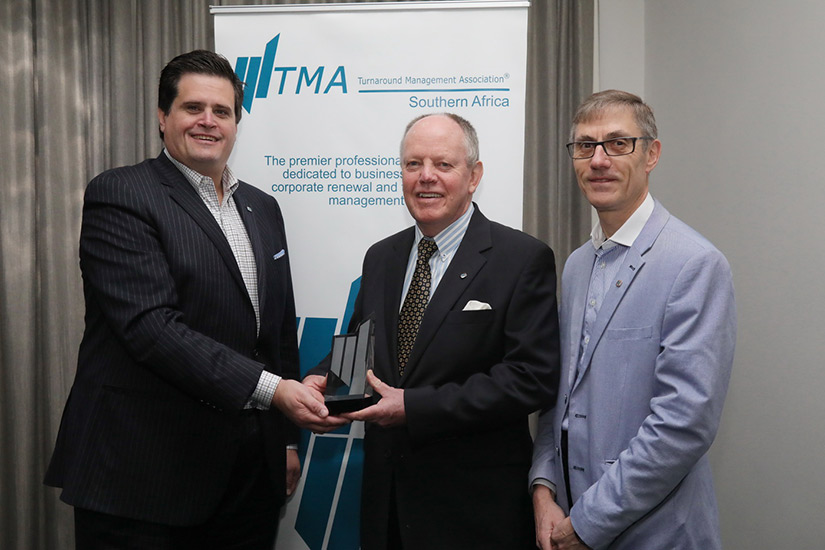Despite the distress in which the South African economy finds itself in, it is not unique to this country. Global uncertainty is putting organisations around the world across industry sectors under immense pressure to survive. This is according to the Turnaround Management Association – Southern Africa (TMA-SA) which recently hosted its Inaugural National Turnaround Conference in Johannesburg.
Designed to start a conversation around the role of turnarounds, corporate renewal, distressed funding, and corporate governance, the conference focused on the topic of turning SA around – because the fact that the SA economy is in significant distress can no longer be ignored. The TMA believes that parallels can be drawn and lessons learnt from how to save companies in distress to saving economies, which in turn saves jobs and communities.
The conference saw Gregory Fine, CEO of TMA Global, discuss the current global turnaround scene and suggest best practices for the turnaround industry in South Africa. “In this environment, companies are trying to find a path forward and stay in business. Management needs to immediately call for help when they realise they are in trouble and not wait until it is too late. Business rescue is a second chance and enables the organisation to keep moving forward while liquidation represents the end of the road,” says Fine.
He believes that there is no single point where a turnaround or business rescue begins as this can befall a company at any stage of its operations. The key is to ask for help or listen to others early enough to improve the chances of a successful turnaround – consulting with a TMA specialist in turnaround and business rescue is critical. A business rescue has the potential to not only save the organisation under pressure, but also the entire supply chain that is dependent on it for its success.
“Nobody wins when a company is liquidated. It is all about getting the professional assistance needed as quickly as possible. In South Africa, industries like mining, retail, and construction find themselves in trouble mirroring what is happening in other parts of the world,” adds Fine.
However, there is no single solution to ensuring that a turnaround or business rescue is successful. Every company has a unique scenario and different requirements. There is also no timeline for how long the process will take. It can be anything from a few months to a few years.
Alastair Macduff, Chairman and CEO of the TMA-SA, believes that the concept of a turnaround is still relatively new in South Africa. “While many see this as a new profession, the changing market dynamics will see this role becoming increasingly important to helping local organisations keep their doors open. Yes, the challenges are not insignificant, but the talent is here as is the desire to keep the economy growing despite the difficulties,” says Macduff.
Companies need to realise that they must be able to change their assumptions and adapt their strategies to be more cognisant of the pressures surrounding their industries. Those that are unwilling to change will be the ones that will not survive.
At the conference, TMA-SA received the International Chapter Operational Excellence Award from TMA-Global. The award is given to those chapters which encompass the spirit of TMA by providing members with local access to educational programmes and workshops, high-quality speakers, networking opportunities, and supporting community endeavours. According to Fine, TMA-SA members have signed up to one of the most rigorous codes of professional conduct of all the TMA Global Chapters.
TMA-SA was recognised for establishing the Certified Rescue Analyst course in partnership with the Centre for Continuing Education at the University of Pretoria, holding regular seminars and practice note sessions on business rescue in South Africa and for its recent growth in membership.
“As turnaround experts, we have all heard businesses saying: ‘All we need is an extra R100m to turn the corner’ – just look at SAA for example. The management of a distressed business and a country behave in similar ways – the deeper the debt burden, the more desperate the measures are taken to try and turnaround the situation. Unfortunately, the cost of mismanagement is carried by the stakeholders and in the case of a country – all its citizens. Let’s ignite the conversation to turn South Africa around. The time to act is now,” concludes Macduff.


